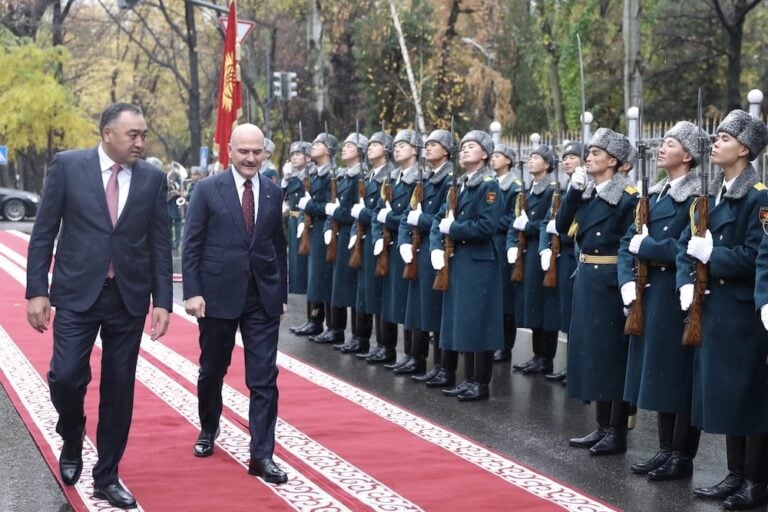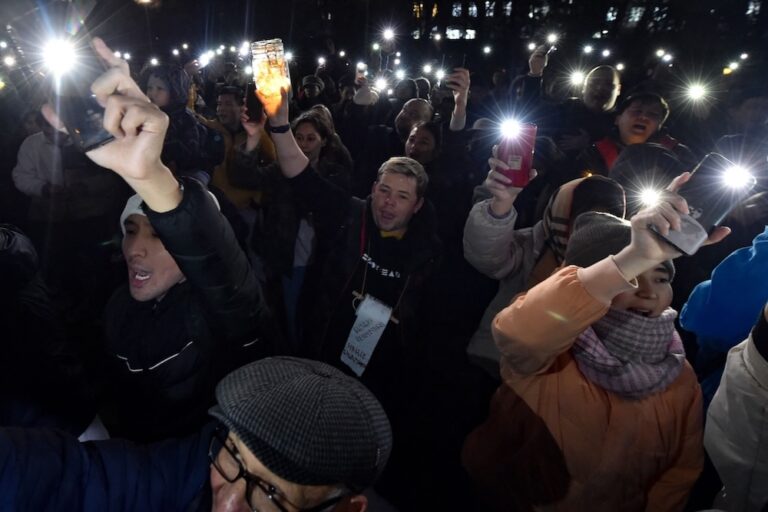(CPJ/IFEX) – The following is a 28 April 2004 CPJ press release: KYRGYZSTAN: TV station back on the air after a 40-day shutdown New York, April 28, 2004-The independent television station Pyramida, based in the Kyrgyz capital of Bishkek, was returned to the air yesterday after being prevented from broadcasting for 40 days, according to […]
(CPJ/IFEX) – The following is a 28 April 2004 CPJ press release:
KYRGYZSTAN: TV station back on the air after a 40-day shutdown
New York, April 28, 2004-The independent television station Pyramida, based in the Kyrgyz capital of Bishkek, was returned to the air yesterday after being prevented from broadcasting for 40 days, according to local and international reports.
The station stopped broadcasting on March 17 because of a technical problem with the transmission equipment it shares with a state television channel. But when the problem was fixed a week later, the Kyrgyz National Communications Agency (NCA), which is responsible for regulating broadcasting frequencies, said that returning Pyramida to the air would interfere with the broadcasts of the state television channel, the London-based Institute for War and Peace Reporting (IWPR) reported.
NCA Director Kubanichbek Begaliev told CPJ that the problem with Pyramida was purely technical and stemmed from the station’s use of a very old antenna.
But Pyramida Director Andrei Tsvetkov says that Pyramida’s weekly political show, “Nashe Vremya” (Our Time), which is financed by the U.S.-based National Democratic Institute, might have angered authorities because it features opposition leaders, along with ruling politicians.
“Pyramida is the only independent television station in Bishkek,” Tsvetkov told CPJ. “It is popular because it gives the Kyrgyz public an objective view of current events.”
Kuban Mambetaliev, director of the nongovernmental organization Public Association “Journalists” in Bishkek, said Kyrgyz authorities have found the station’s objective reporting inconvenient, especially in the run-up to local elections scheduled for October 2004 and parliamentary elections due in February 2005.
He said that his organization, along with several other human rights and media associations, had sent a letter to President Askar Akayev a week after Pyramida’s shutdown asking for the station to be allowed to broadcast again.
The government did not change its policy until April 26, when President Akayev met with financier and philanthropist George Soros. Soros, who met with Kyrgyz media representatives the next day, assured them that Akayev had promised to take care of the situation. Pyramida resumed its broadcasting that evening, on April 27.
Because the station was off the air, Pyramida has suffered significant financial losses, Tsvetkov told CPJ. It has lost important advertisers, and the station’s staff has been forced to go on an unpaid leave.
CPJ is a New York-based, independent, nonprofit organization that works to safeguard press freedom worldwide. For more information about press conditions in Kyrgyzstan, visit http://www.cpj.org


